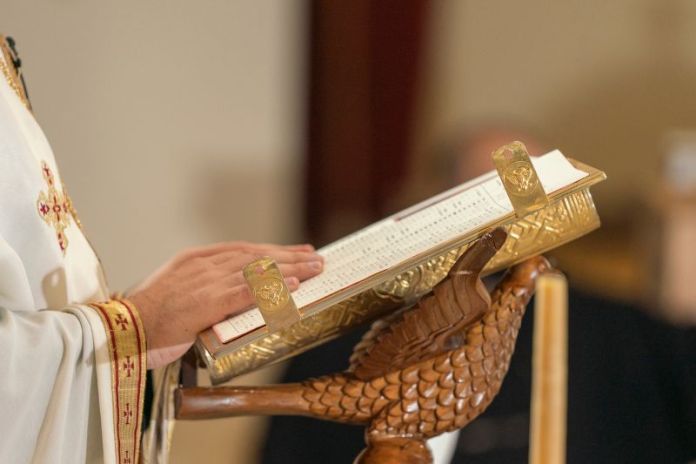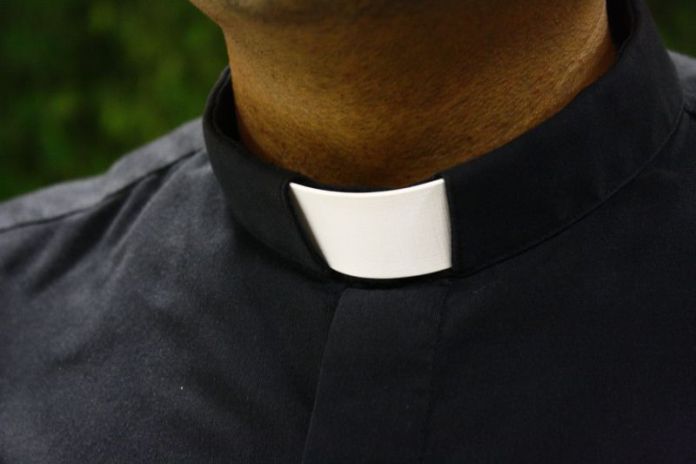Germany is an increasingly secular country: according to the Religions Monitor 2023released Thursday by the Bertelsmann Foundation, the percentages of Germans who believe in God and regularly practice a religion has dropped dramatically over the past 10 years.
There is also a sharp increase in those who formally abandon their religious group.

Less than half of Germans believe in God
In Germany, this last figure is a rather concrete indicator of the role that the Church and religion have in people’s lives: affiliation with a religious group (for example, through baptism) translates into the regular payment of a tax intended to the Church to which they belong. Anyone who wishes to stop paying this tax despite having been associated with a religion for a certain period of life must formalize the so-called Kirchenaustrittor to sign a document that formalizes the abandonment of religion.
The survey by the Bertelsmann foundation, however, not only examines the actual numbers of members of religions, but is also based on a survey that investigates the feelings of the interviewees. This survey shows, for example, that only 38% of respondents believe in God “a lot” or “enough” and that the same percentage, among those over the age of 16, declares having received a religious education (against 45% in 2013). Only 14% say they attend church at least once a monthagainst 20% ten years ago.

The private practice of religion is also declining: the percentage of those who say they pray daily decreased from 23% to 17%, while that of those who never pray rose from 32% to 43%.
How many people are willing to abandon religion
The issue of the Kirchenaustritt was also addressed in the Religionsmonitor 2023: one person in five, among those who are still members of a Church, intends to formally abandon the religion. Percentage that rises to 35% among adults aged between 25 and 39 years and 41% among young people aged between 16 and 24 years.
According to the head of the survey and religion expert of the Bertelsmann Foundation, Yasemin El-Menouar, the growing loss of social relevance of the Churches is due to a plurality of factors, which are not necessarily the same for all Churches. In general, according to El-Menouar, it registers a growing tendency towards individualismwhereby “traditional forms of ecclesiastical religiosity are being replaced by more private forms of spirituality”.

Contribute to the secularization of Germany also the growing social diversity due to immigrationbut also an increasingly critical view of the Church in general, and a loss of trust in religious institutions due to scandals and behaviors of members of the clergy.
It is no coincidence that two thirds of those who declare their intention to formally leave their religion of origin are Catholics. Within this group in particular, the scandals and the resistance of the curia to the reforms have contributed to alienating the sympathy of many faithful.
Read also:
Cologne, the scandal shakes the Church: hundreds of minors victims of sexual abuse
Reservations also expressed regarding the social role of the Churches
Beyond the criticisms of a specific ecclesiastical institution, however, the interviewees expressed reservations also towards the social role of the Churches in a broad sense: 71% of those who are considering a formal abandonment of religion, for example, believe that the Churches have too much power and 68% find the privileges still enjoyed by the Churches in a multi-religious society unjust.
For many, however, the formal removal from the institution (and above all from the payment of the tax on religion) does not necessarily correspond to the renunciation of a private spirituality. Among those who declared that they would formally renounce their religious affiliation, in fact, as many as 92% of those who want to leave the Church, and 84% of those who have no intention of abandoning their religious group, declared that “one can be a Christian even without a Church”.

According to El-Menouar, this datum in particular raises the question of the social relevance of the Churches and their long-term role, within German society and in the lives of individuals. It is evident that, for an increasing number of people, this role is not such as to justify financial support.
Generally speaking, the Protestant and the Catholic Church they account for about a quarter of the population, which can only shift the general relevance of the Churches and their relationship with the State into perspective. Obviously within a pluralistic society, which identifies shared social values and progressively frees them from the spiritual ones, which are increasingly lived in a strictly private sphere.
PS If you liked this article, follow Il Mitte on Facebook!
Religionsmonitor 2023: Less than half of Germans believe in God – Mitte


